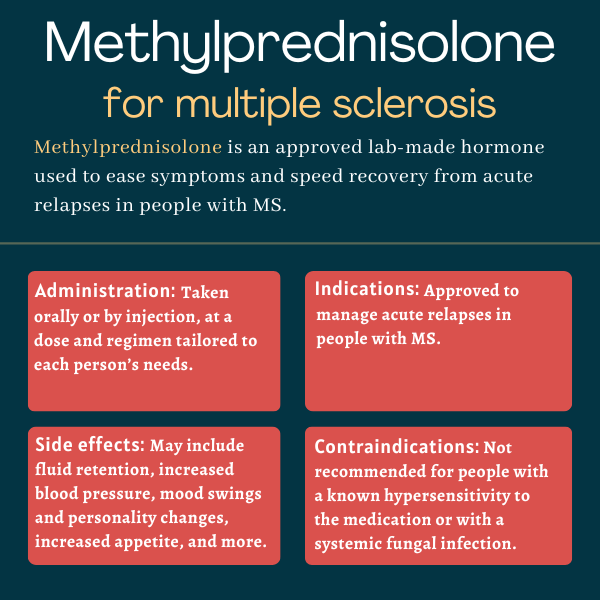
FAQs about methylprednisolone in MS
Methylprednisolone is a corticosteroid that is used to manage acute relapses in people with multiple sclerosis (MS). These are periods when symptoms suddenly worsen or new symptoms appear. It works by reducing inflammation, which can ease symptoms and accelerate the recovery from MS relapses, though it does not affect overall disease progression.
Methylprednisolone may cause harm to a developing fetus and should only be used during pregnancy if its potential benefits outweigh the risks. Patients and their healthcare providers should discuss these decisions in detail based on their unique situation.
There is no known direct interaction between alcohol and methylprednisolone. However, methylprednisolone can make the stomach and intestines more susceptible to the irritating effects of alcohol, which increases the risk of ulcers. Patients should ask their healthcare team whether it’s safe to drink alcohol while on methylprednisolone.
For people experiencing a multiple sclerosis (MS) relapse, treatment with methylprednisolone can lead to benefits within a few days, with more substantial progress often seen in the following weeks. Still, the timeline for seeing improvements can vary significantly from person to person.
Increased appetite and weight gain are common side effects of corticosteroids, and thinning scalp hair is also indicated on methylprednisolone’s label as a possible side effect. Patients should talk with their healthcare provider if they experience any unanticipated side effects while on the medication.
 Fact-checked by
Fact-checked by 


